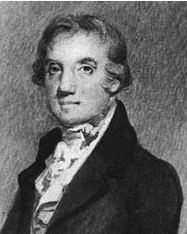 You’ve heard of George Washington, Benjamin Franklin and Thomas Jefferson, but how about Abraham Baldwin (1754-1807)? He was a Founding Father, signing for the state of Georgia, but he’s also the man responsible for establishing the University of Georgia, the oldest public university in the country.
You’ve heard of George Washington, Benjamin Franklin and Thomas Jefferson, but how about Abraham Baldwin (1754-1807)? He was a Founding Father, signing for the state of Georgia, but he’s also the man responsible for establishing the University of Georgia, the oldest public university in the country.
Baldwin believed strongly in public education, a belief shared by his father, who raised Abraham and his 11 siblings in New Haven, Connecticut, and went deeply into debt to pay for his sons to attend Yale University. Baldwin graduated from Yale in 1772, taught there as a tutor until 1779, when he served as chaplain in the Revolutionary Army from 1779 to 1783.
In 1784, Baldwin left New England for Georgia to start a law practice. There, he connected with a fellow alumnus of Yale, who happened to be Georgia’s governor. Governor Lyman Hall shared Baldwin’s passion for education and sought a partner in developing a comprehensive secondary and higher educational system for Georgia. He convinced Baldwin to join him in this effort, and after Baldwin was elected to the Continental Congress at the age of 31, he drew up a plan for Georgia’s education system. That plan included a 40, 000-acre land grant for a college.
Baldwin served as president of the University of Georgia—originally named Franklin College after Benjamin Franklin—from 1786 until a land site was selected and the university opened for students in 1801. While he worked to establish the public university, Baldwin also made history by signing the United States Constitution at the Constitutional Convention in 1787.
Today, the University of Georgia prides itself on being “America’s first state-chartered university and the birthplace of the American system of public higher education.” While the term “education” does not appear in the United States Constitution—the Founding Fathers agreed that education was a matter left to the states—clearly, to men like Abraham Baldwin, it was incredibly important to give people access to a state-supported institution of higher learning. He believed that it was a state’s duty to educate its citizens, which thereafter became a popular principle. Other states soon followed in Georgia’s footsteps, including North Carolina, which established the University of North Carolina in 1795.








